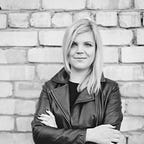Being aware of the stories we tell to ourselves
An old monk traveled from afar seeking advice from the Abbess. He explained that all his life he had used stories to tell himself and others who he was. He lived in some stories for decades. When eventually a story proved hollow and meaningless he wound find another belief, another religion, another role.
He told the Abbess, “Buddhism and being a monk has been my story for the last thirty years, but now I’ve let go of even that story. With no story I don’t know who I am. How can I live when I don’t have story?”
Gently the Abbess said to him, “This is good. Now, turn to the people around you and listen to their stories.”
This is a tale from one of my favorite books, which touches some topics and questions I’ve been giving a lot of thought lately: the stories we tell ourselves about what’s happening in our lives, about other people; and interpreting vs listening.
In many ways, we are what we believe ourselves to be. There is a lot of truth in the notion that “we are the stories we tell ourselves.”
We create stories to define our existence. We create stories to make sense of the things that happen to us. We create stories to share our life and our stories with other people.
I always think that those “stories” are not necessarily false. Nor are they true. They’re just my own interpretation of the life, of myself, and of other people. And I can’t stress enough the importance of this realization.
I often see people living in full confidence that they know the truth, they know other people well, their motives and intentions, the reasons for their actions. This is when they feel they can judge and their judgement is very well-grounded and justified.
When in fact, they got confidence in their constructed narratives based on own experiences, a perspective on the world, an interpretation of facts as they see them.
Sometimes, this brings me to despair because of how hard someone is holding on to his interpretations, because of how often it is impossible to change them, no matter what you say or try to explain.
“For things to reveal themselves to us, we need to be ready to abandon our views about them.” — Thich Nhat Hanh
There is another way of being: where we don’t cling to the stories but can drop them, being ready to change your opinion, to have the power to accept things as they are, whether agreeable or disagreeable.
When we able to acknowledge that we don’t know other people since we don’t even know ourselves well, then we have little room to judgements…
And here is when I bring the topic of listening again.
Ask before you think you know the answer.
Ask and listen again, even if you think you know the truth.
